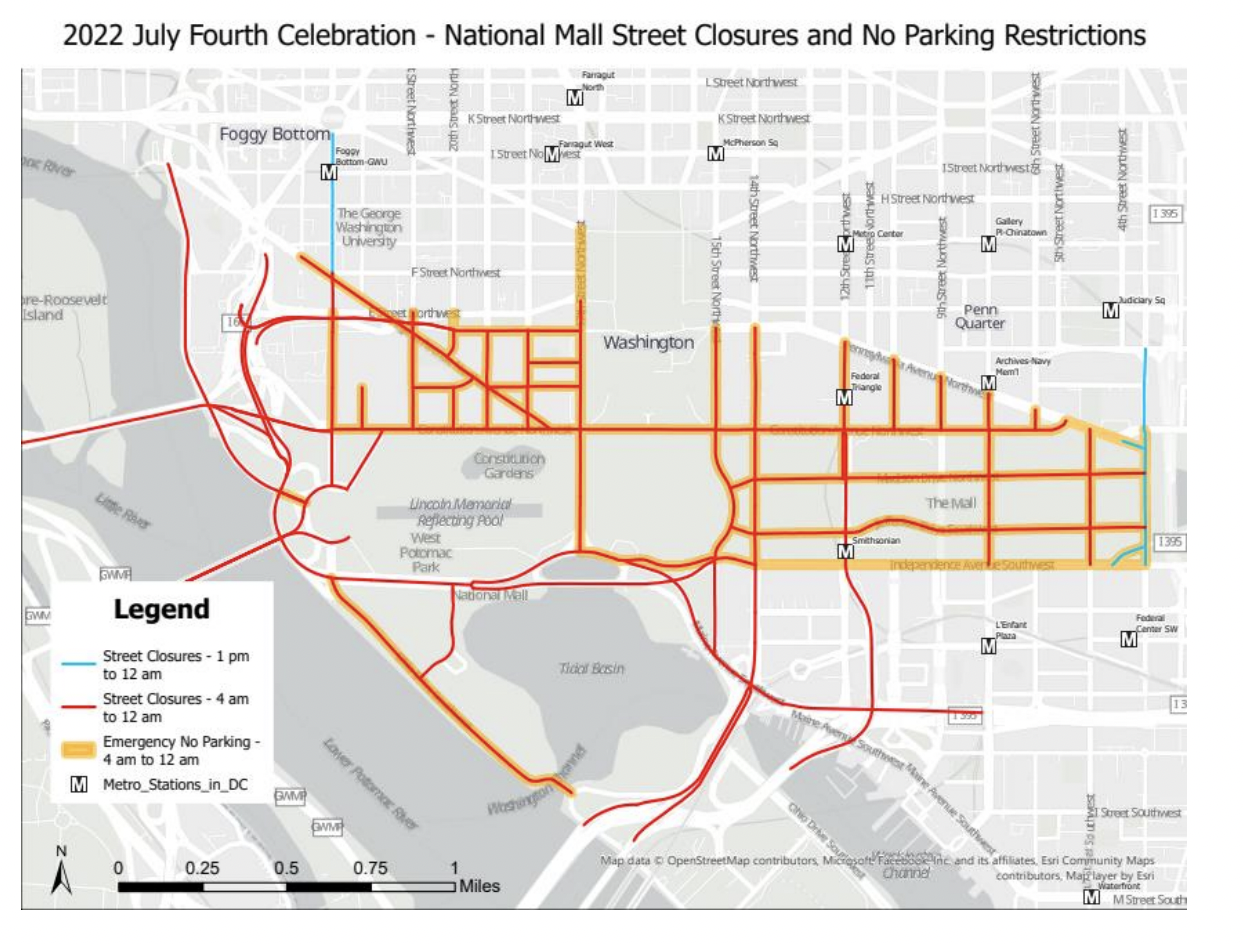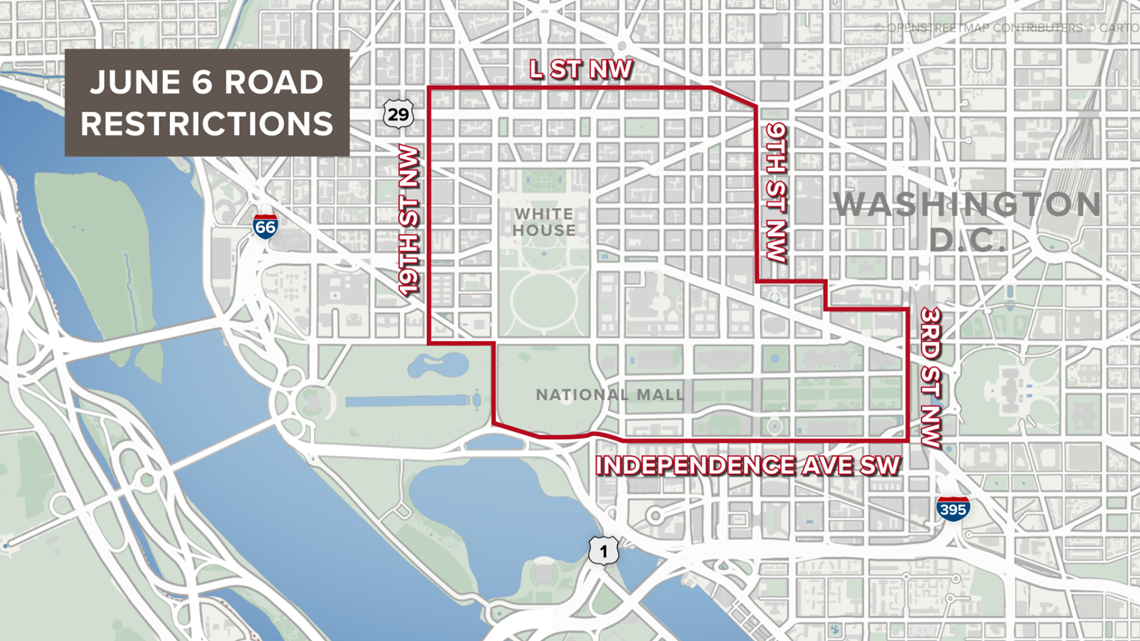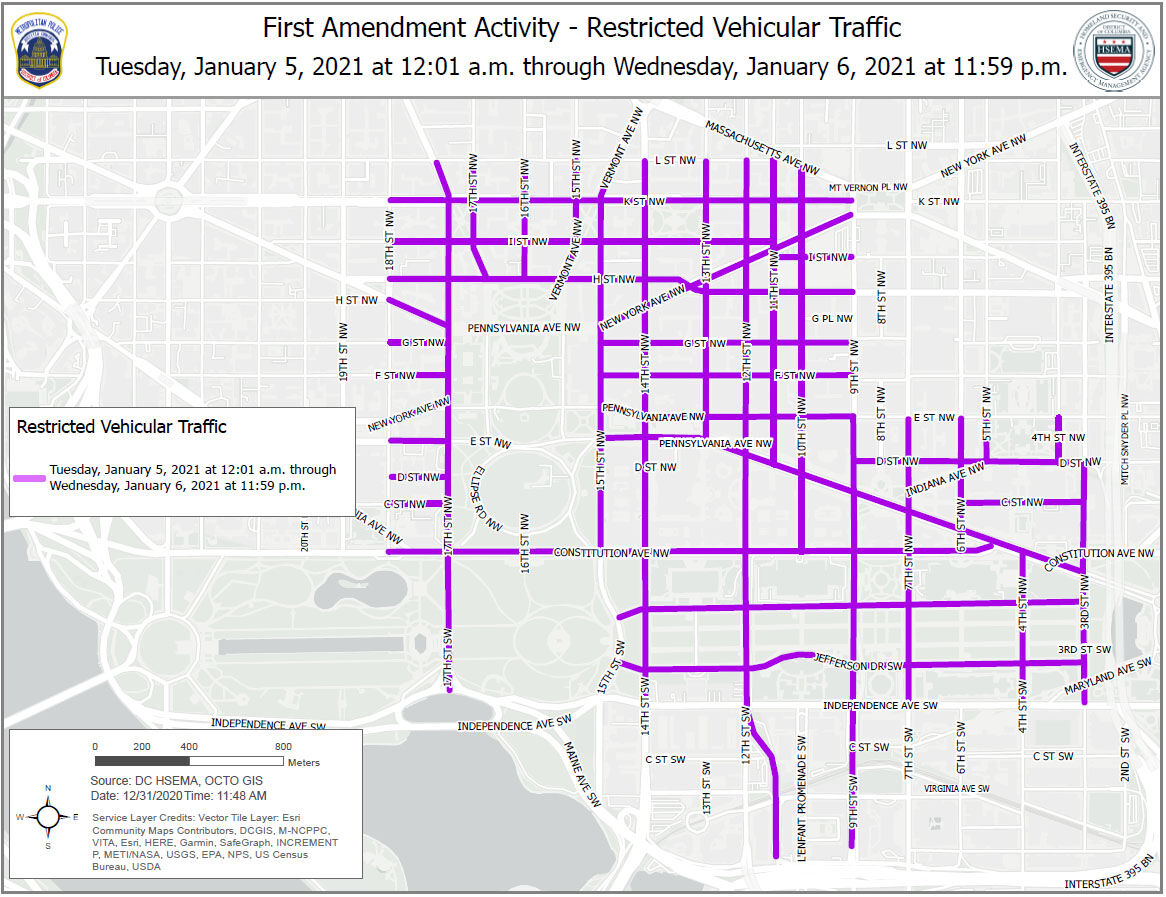road closures dc map
Related Articles: road closures dc map
Introduction
With great pleasure, we will explore the intriguing topic related to road closures dc map. Let’s weave interesting information and offer fresh perspectives to the readers.
Table of Content
Navigating the City: Understanding Road Closures in Washington, D.C.

Washington, D.C., a vibrant metropolis teeming with activity, is constantly in motion. This dynamic environment often necessitates temporary road closures, impacting traffic flow and pedestrian access. Understanding the reasons behind these closures and the resources available to navigate them is crucial for residents, commuters, and visitors alike.
Delving into the Reasons for Road Closures
Road closures in Washington, D.C. are implemented for a variety of reasons, each contributing to the city’s safety, functionality, and development:
- Construction and Infrastructure Projects: Major infrastructure upgrades, road repairs, and new development projects often necessitate temporary road closures. These closures allow for efficient construction, ensuring the safety of workers and the public.
- Special Events and Festivals: The city hosts numerous events, from large-scale concerts and festivals to smaller community gatherings. To accommodate crowds and facilitate safe access, specific roads may be closed temporarily.
- Emergency Situations: In the event of accidents, natural disasters, or other emergencies, road closures are implemented to ensure the safety of first responders and the public, allowing for efficient emergency response.
- Public Safety Measures: Road closures may be implemented for security purposes during high-profile events, political gatherings, or other situations requiring enhanced safety measures.
- Maintenance and Cleaning: Routine maintenance tasks, such as street cleaning, tree trimming, and utility repairs, can necessitate brief road closures to ensure the safety of workers and minimize disruption.
Navigating the City with Road Closure Information
Navigating a city with road closures requires access to reliable and up-to-date information. Fortunately, several resources are available to help individuals plan their routes and avoid disruptions:
- District Department of Transportation (DDOT): DDOT’s website provides a comprehensive list of current and upcoming road closures, including information on the affected streets, duration of the closure, and reasons for the closure. The website also offers interactive maps and a dedicated phone line for reporting road closures.
- Wmata.com: The Washington Metropolitan Area Transit Authority (WMATA) website offers information on potential disruptions to Metro service caused by road closures, allowing passengers to plan their commutes accordingly.
- Waze and Google Maps: These popular navigation apps integrate real-time traffic data, including road closures, into their route planning. Users can receive alerts about road closures and adjust their routes accordingly.
- Social Media: Local news outlets, government agencies, and community groups often share information about road closures on social media platforms, offering real-time updates and alternative routes.
Understanding the Importance of Road Closure Information
Staying informed about road closures is essential for several reasons:
- Efficient Travel Planning: Access to accurate and timely information allows individuals to plan their commutes and avoid potential delays or detours.
- Safety and Security: Road closures often signify hazardous conditions or security measures. Being aware of these closures can help individuals stay safe and avoid potentially dangerous situations.
- Minimizing Disruptions: By understanding the reasons behind road closures and the alternative routes available, individuals can minimize the impact of these closures on their daily lives.
FAQs Regarding Road Closures in Washington, D.C.
1. How can I report a road closure?
You can report a road closure to DDOT through their website, mobile app, or by calling their dedicated hotline.
2. What should I do if I encounter a road closure?
Follow the posted signs and detour routes. If you are unsure of the best route, use navigation apps or contact DDOT for assistance.
3. How can I find out if a specific road is closed?
You can check the DDOT website, navigation apps, or local news outlets for information on specific road closures.
4. What are the typical hours for road closures?
Road closures can occur at any time, depending on the reason for the closure. Construction projects often involve closures during daytime hours, while events and emergencies can lead to closures at any time of day or night.
5. Can I drive through a road closure?
It is illegal to drive through a road closure unless authorized by law enforcement. Doing so can result in fines and other penalties.
Tips for Navigating Road Closures
- Plan Ahead: Check for road closures before starting your journey.
- Use Alternative Routes: Utilize navigation apps to find alternative routes and avoid closed roads.
- Allow Extra Time: Be prepared for delays and traffic congestion caused by road closures.
- Follow Posted Signs: Pay attention to detour signs and follow them carefully.
- Be Patient: Road closures can cause inconvenience, but patience and understanding are essential.
Conclusion
Road closures are an unavoidable part of life in a bustling city like Washington, D.C. By understanding the reasons behind these closures, accessing reliable information, and adopting a proactive approach to navigation, individuals can minimize the impact of road closures on their commutes and daily lives. Staying informed and adapting to changing road conditions is crucial for navigating the city efficiently and safely.







Closure
Thus, we hope this article has provided valuable insights into road closures dc map. We thank you for taking the time to read this article. See you in our next article!